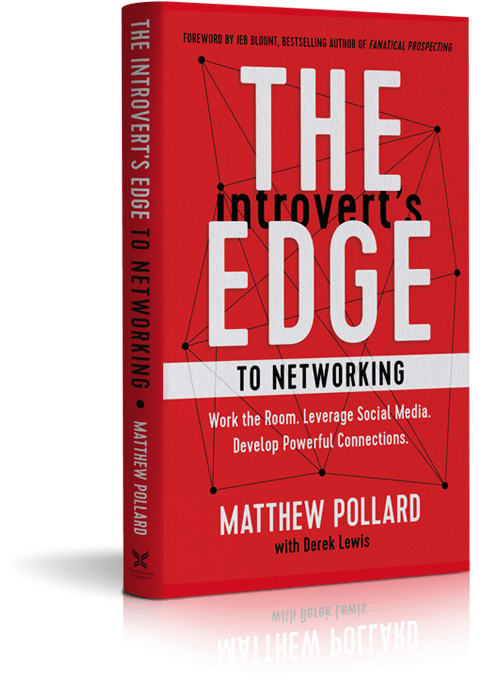Are you an introvert struggling to navigate the business world, especially when it comes to meetings and communication? Fear not! This article will guide you through navigating business meetings as an introvert, embracing your introverted nature and thriving in the professional world, from preparing for meetings to successfully adapting to office and virtual environments. Discover valuable tips and strategies to ensure your voice is heard and your unique skills are utilized to their full potential.
Embracing Your Introverted Nature in the Business World
In the fast-paced and always-connected business world, introverts may often feel overwhelmed and unheard in meetings. However, as readers of our blog know very well, introverts possess unique strengths that are incredibly valuable in a professional setting, such as research, preparation, and listening and analysis skills. By recognizing and embracing these strengths, introverts can successfully navigate meetings and build relationships with colleagues that are mutually beneficial.
Contrary to popular belief, introverts can and do excel in the business world, even if they don’t have the loudest voice in the room. By embracing and harnessing their unique strengths, introverted team members can provide crucial insights and contribute effectively to group discussions, even in the most seemingly intimidating settings.
Introverts Excel at Listening and Analysis
One significant advantage that introverts have in the business world is their ability to listen deeply and analyze information. While extroverts may be quick to voice their opinions, introverts tend to take a step back and carefully consider multiple perspectives before offering their input during meetings. This approach enables them to identify potential solutions to issues, provide meaningful feedback on ideas, and assist in fostering productive conversations.
Embracing these inherent listening and analysis skills can help introverts navigate through the challenges of meetings and group discussions, ensuring that their voice is heard and valued. Capitalizing on these strengths means that introverts can contribute effectively to the conversation and be an indispensable asset to their team.
Consider this example: In a team meeting at a tech company, the extroverts energetically propose various software features. Sarah, an introverted engineer, listens and analyzes quietly. Once the initial flurry of ideas slows, she highlights potential user experience and technical issues, suggesting a more streamlined approach. Her insightful feedback, born from deep listening and analysis, refocuses the team’s direction, steering them to more viable solution.
Building Relationships Through Small Talk
While introverts may sometimes find small talk challenging, it’s a crucial part of building professional relationships. By discovering shared interests and sharing personal experiences, introverts can foster trust and understanding with their coworkers.
Introverts can strategically incorporate small talk whenever they attend a meeting. They might choose to arrive a few minutes early, providing an opportunity for casual, “free for all” conversation. They can also initiate discussion by asking about a colleague’s interests, background, or current projects. All these efforts can help them connect more deeply with their team.
One quick tip for those who feel awkward with small talk is to prepare a few go-to topics in advance. These could be about recent movies, books, travel, hobbies, or current events. Having these topics ready can help reduce anxiety about what to say.
Also, remember that people generally enjoy talking about themselves. So, asking open-ended questions about the other person’s interests or experiences can keep the conversation flowing and take the pressure off you to do all the talking.
Lastly, remember that it’s okay to have moments of silence in a conversation. You don’t need to fill every moment with words. Sometimes, a pause can give both parties a chance to gather their thoughts.
Navigating Business Meetings as an Introvert: Preparation
Introverts are often seen as quiet observers in meetings. In fact, according to the Kellogg School of Management, in a typical six- to eight-person meeting, three people do 70% of the talking. This dynamic can often sideline introverts. But with the right preparation strategies, you can ensure your voice is heard.
Leverage your strengths of preparation, analysis, and reflection to feel more confident in meetings. This includes understanding the agenda, practicing your public speaking skills, and determining your own pace for delivering your thoughts.
Before a meeting, review the agenda and formulate your thoughts on each topic. This will help you articulate your ideas clearly and confidently. If speaking up makes you nervous, remember that your knowledge and passion for the topic are what truly matter. Genuine passion is contagious, no matter how it’s expressed.
Finally, as Susan Cain suggests, “Give yourself a push to speak up early. The ideas articulated earliest are the ones people listen to most.”
Practicing Public Speaking
Improving public speaking skills is vital for introverts to boost their confidence and communication abilities in the professional arena. Studying great speakers through videos, books, and attending public speaking events can help you learn valuable techniques and strategies.
Seeking constructive feedback from a friend or mentor, joining a public speaking group, or enrolling in relevant classes or workshops can also aid in refining public speaking skills. Recording yourself speaking and reviewing the footage to identify areas for improvement is an excellent method for self-assessment.
Additionally, using visual aids, such as slides and diagrams, can help illustrate points and maintain audience engagement.
Finding Your Own Pace
Finding your pace in presentations or business meetings as an introvert is a key to success. Keep in mind that your thoughtful and introspective nature serves you well here, too. You don’t have to match the energy or speed of extroverted speakers; instead, focus on delivering your message in a way that feels authentic and comfortable to you.
Again, preparation is crucial. Spend time organizing your thoughts and familiarizing yourself with your material. This can help you feel more confident and reduce the need for on-the-spot thinking, which can sometimes feel overwhelming in a large group setting.
During the presentation or discussion, don’t hesitate to pause and take a moment to gather your thoughts. This can not only give you a chance to breathe, but also allow your audience to absorb the information you’ve shared. After all, effective communication is not about speed, but about clarity and understanding.
Finally, consider using visual aids or handouts throughout the meeting. These can help you guide the conversation, provide additional information, and give your audience something to focus on besides you. This can take some of the pressure off and allow you to navigate the presentation or discussion in a way that suits your introverted nature.
Tips for Getting Back to In-Person Business Meetings as an Introvert
After a prolonged period of remote work due to the pandemic, many introverts have grown accustomed to the comforts and conveniences of working from home. However, as some companies are now transitioning back to in-person work, this shift can feel daunting. This is true whether you’re a traditional employee, or an entrepreneur resuming office meetings with clients and prospects.
This section provides practical tips and strategies to help you navigate the transition back to the office, making it more manageable and less stressful. Let’s explore how you can adapt to this change while maintaining productivity, energy, and well-being.
Scheduling Time to Recharge
Scheduling time for a deep breath now and then is essential for introverts to maintain their energy levels throughout the day. To establish an effective routine, try scheduling breaks every 75-90 minutes. Or experiment with taking a break every 30-90 minutes until a comfortable pattern is found. Be sure to schedule breaks on a calendar or planner and adhere to them accordingly.
During breaks, you can practice the 4-7-8 breathing method to help you relax and recharge. By prioritizing self-care and allowing time for mental and emotional restoration, you can ensure you remain at your most effective in the workplace, especially while juggling multiple meetings.
Leveraging Technology for Communication
Even if you must be in the office more than you’d like, you can continue to benefit from leveraging technology, such as email and instant messaging, which introverts prefer for communication. They allow you to convey your ideas and thoughts without the pressure of face-to-face interactions, enabling you to contribute meaningfully to workplace conversations.
Be Clear and Concise: Whether it’s an email or an instant message, make sure your communication is clear and to the point. Avoid unnecessary jargon and ensure your main points are easily understandable.
Use Appropriate Tone: Written communication doesn’t convey tone of voice or facial expressions, so it’s important to be mindful of how your words might be interpreted. Using polite language and avoiding overly technical or formal terms can help maintain a friendly and approachable tone.
Proofread: Before hitting send, take a moment to review your message for any typos or grammatical errors. This not only ensures professionalism but also helps avoid any potential misunderstandings.
Use Tools Effectively: Many communication platforms have features like “Do Not Disturb” or status updates. Use these to manage your availability and to communicate when you’re focusing on deep work.
Respect Boundaries: Remember that just because digital communication can be sent at any time, it doesn’t mean it should be. Respect your colleagues’ personal time and try to send messages during regular working hours.
Ultimately, using communication thoughtfully and effectively can reduce the number of meetings you’re forced to attend! If the topic can be addressed and resolved in a well-organized group email exchange instead of a meeting, that’s a dream come true for introverts.
Creating “No-Meeting Zones”
As an introvert, you likely find the idea of “No-Meeting Zones” appealing. This concept involves designating specific times or days where no meetings are scheduled, allowing for uninterrupted focus on individual tasks. If you’re a business owner, you can implement this policy yourself. If you’re an employee, you might consider suggesting this idea to your boss.
When proposing this idea, it’s important to highlight the benefits of No-Meeting Zones: more focus, less context switching, less time wasted, and more autonomy and cooperation. It can also reduce the total number of meetings, which is a boon for introverts.
To suggest this to your boss, you could prepare a brief presentation or email outlining these benefits. You could also suggest a trial period to assess the impact of the No-Meeting Zones on productivity and employee satisfaction.
Reassure your boss that the goal is not to eliminate meetings entirely, but to create a balance that allows for both collaborative discussions and focused individual work.
Conclusion: There Will Always Be Meetings!
Let’s face it: Nobody actually enjoys meetings, especially us introverts. But because they’re inescapable, we can try regarding them as opportunities for getting out of our comfort zones and working on personal and professional growth.
After all, for as long as you’re in the professional world, whether as an employee or business owner, you’ll be leading or attending meetings. By harnessing our introverted strengths, we can navigate these occasions, and any professional scenario, with confidence and grace.





























